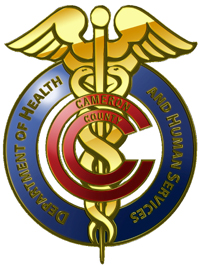- National Library Week in Los Fresnos
- Lady Falcons are Class 6A Champions
- New Beauty Clinic Opens Up in Los Fresnos
- “Houston’s Most Notable” —Los Fresnos Raised
- Earth Day 2024 coming April 6th in Los Fresnos
- Another Successful Golf Tournament for the Leo Aguilar Foundation
- Back to The Moon Again
- March 2024 Your Health Matters
- Lady Falcons in Tournament Play
- Easter Fun at Big Red’s Ranch
Public Service Announcement Regarding Influenza
- Updated: February 7, 2014
 Influenza-like illness (ILI) intensity is high and widespread in Texas. This high influenza activity is likely to continue for
Influenza-like illness (ILI) intensity is high and widespread in Texas. This high influenza activity is likely to continue for
several weeks and thus, Cameron County Department of Health and Human Services would like to remind the public to take
the necessary precautions to protect themselves and others from influenza.
Influenza (also called flu) is a contagious respiratory illness caused by influenza viruses that infect the nose, throat, and
lungs. Flu can cause mild to severe illness, and at times can lead to death. Usually flu comes on suddenly and may include
symptoms such as fever or feeling feverish, chills, cough, sore throat, runny or stuffy nose, muscle or body aches,
headaches, and fatigue. Some people may have vomiting and diarrhea, though this is more common in children than adults.
Influenza viruses are spread mainly by droplets when people with flu cough, sneeze, or talk. These droplets can land in the
mouths or noses of people who are nearby. Less often, a person might also get flu by touching a surface or object that has
flu virus on it and then touching their own mouth, eyes or possibly their nose.
A person who is sick with the flu can spread the virus starting one day before he/she feels sick. Adults can continue to pass the
flu virus to others for another three to seven days after symptoms start. Children can pass the virus for longer than seven days.
Symptoms start one to four days after the virus enters the body. Some persons can be infected with flu virus but have no
symptoms. During this time, those persons can still spread the virus to others.
The Cameron County Department of Health and Human Services is asking the citizens of Cameron County to take the
following personal precautions to prevent the spread of the flu virus:
• get the flu vaccine if you have not done so already (this is the single best way to prevent the flu);
• avoid close contact with people who are sick;
• stay home when you are sick;
• cover your mouth and nose with a tissue when coughing or sneezing;
• clean your hands/wash them often; and
• avoid touching your eyes, nose or mouth as germs are often spread when a person touches something that is
contaminated with germs and then touches his or her eyes, nose, or mouth.
If you develop the flu, it is advisable to
• get plenty of rest,
• drink plenty of liquids,
• avoid using alcohol and tobacco,
• seek medical attention, and
• take antiviral medications if your provider prescribes them.
If you are at special risk from complications of flu or if your flu symptoms are unusually severe, you should consult your
health care provider.
For additional information on Influenza, please visit http://www.cdc.gov/flu/index.htm and http://www.texasflu.org/.





